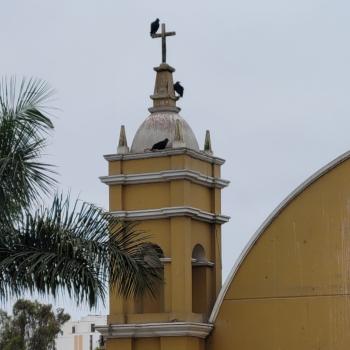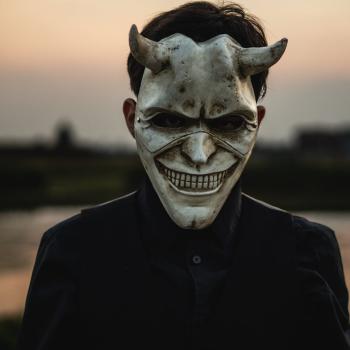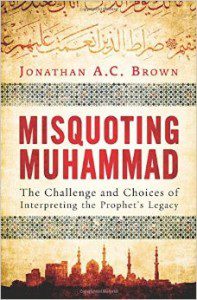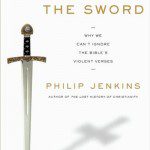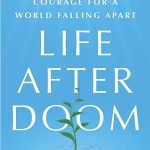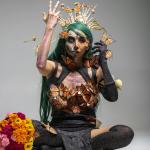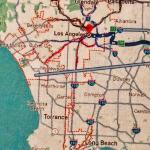In August, I blogged about “Tectonic Shifts in the Global Religious Landscape” on the occasion of the 100th anniversary of the beginning of World World I. One hundred years later we see, in the words of historian Philip Jenkins, that the end of the Ottoman empire in the aftermath of World War I — and with it the “effective end of the Islamic caliphate” — radically affected Islam (26):
As a political force, Islam in 1914 was inconceivably weaker than it is today. There were perhaps 240 million Muslims in the world, so that Christians outnumbered Muslims by two and a half to one, compared to a modern ratio closer to one and a half. The number of Muslims alive in 1914 was not much larger than the modern Muslim population of just the nation of Indonesia (235)
I would like to pick up at that point for this post on “The Future of Islam.”
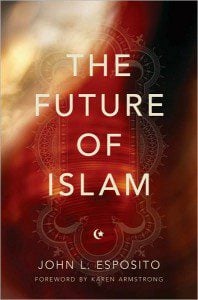 And that historical note about the end of the Islamic caliphate in the wake of the first World War seems all the more relevant now with the terrorist group ISIS dominating headlines with horrific acts of savagery in an effort to reestablish an Islamic caliphate. From the Arabic word for “succession,” a caliphate is an Islamic empire ruled by a religious and political leader known as a caliph, who is seen as a “successor” to Muhammad.
And that historical note about the end of the Islamic caliphate in the wake of the first World War seems all the more relevant now with the terrorist group ISIS dominating headlines with horrific acts of savagery in an effort to reestablish an Islamic caliphate. From the Arabic word for “succession,” a caliphate is an Islamic empire ruled by a religious and political leader known as a caliph, who is seen as a “successor” to Muhammad.
But long before ISIS started making headlines, I planned to blog about Islam. And I began writing this post a few weeks ago as more than two million Muslims are nearing the end of the annual weeklong pilgrimage to the city of Mecca in Saudia Arabia. Hajj, which is simply the Arabic word for “pilgrimage,” is one of the Five Pillars of Islam, and all Muslims are expected to make this journey at least once in a lifetime if they are able physically and financially.
There is an old saying that the difference between a pilgrim and a tourist is that, “A tourist passes through a place, but a pilgrim allows a place to pass through them.” And Muslims who have completed the Hajj report feeling more connected to the sacred, to their own deepest selves, and to the diverse worldwide Muslim community known as the ummah.
The other four pillars of Islam are shahada (“testimony”), salat (“prayer”), Ramadan (the annual month-long fast), and zakat (“almsgiving”). The shahada is a single sentence about monotheism and the trustworthiness of the prophet Muhammad’s message about the one God: “There is no god but God, and Muhammad is the messenger of God.” You may notice that I said “God” instead of “Allah,” and that’s because Allah is simply the Arabic word for God. Arabic Christians or Arabic Jews also use the word Allah if they are speaking Arabic.
Muslims are also called to pray five time per day (at sunrise, noon, midafternoon, sunset, and evening), to fast from dawn to dusk each day during the month of Ramandan (refraining from food, drink, smoking, sex, and anger), and to give 2.5% of wealth (not just income) to charity annually. (For more details on the Five Pillars, see John Esposito, The Future of Islam, 42-50.)
From the perspective of religious progressives, the most significant aspect to the Five Pillars of Islam is that they make Islam an orthopraxy (about “right action”) not an orthodoxy (about “right belief”). In my tradition of Unitarian Universalism, we like to say that “We believe in deed not creeds” — and that religion is much more about ethics than about believing “six impossible things before breakfast.” So one important piece of hope for the future of Islam is focusing this ethical framework of the Five Pillars ever more fully on social justice as well as supporting those who are reinterpreting traditional Islam through the lens of science, democracy, and human rights.
But I invite you to consider that the “Future of Islam” is not merely about how we want Islam to change. Rather, we should also consider how Islam might inform the future of progressive religion more generally. What might we learn, for example, from the Five Pillars of Islam?
To use my own tradition as an example, what if once in a lifetime, all Unitarian Universalists who are able physically and financially, were encouraged to make a pilgrimage to Unitarian Universalist historic sites in and around Boston? (Some of you may know the old joke that 19th-century Unitarianism was about “The Fatherhood of God, the Brotherhood of Man, and the Neighborhood of Boston.”) Or what about a pilgrimage to the many sites around Concord related to the nineteenth-century Transcendentalist movement, to Transylvania to explore the 16th-century European roots of Unitarianism, or to Murray Grove on the New Jersey shore, where John Murray (“the founder of Universalism in the U.S.”) first preached Universalism in 1770? What might parallels be in your religious tradition?
Relatedly, how might progressive religions generally be strengthened if all religious progressive — whatever their tradition — paused at least five times per day to practice the spiritual discipline of their choice, spent one month per year intensively practicing their spiritual path, and annually contributed 2.5% of their wealth?
But as you can likely guess, most Americans are not asking what they might learn from Islam. As reported in the important book Who Speaks For Islam?: What a Billion Muslims Really Think, 57% of Americans, when asked “What do you admire about Muslim societies?” respond either “nothing” or “I don’t know” (1). Years after 9/11, “nearly two-third of Americans confess that they don’t have even a basic understanding of Islam.” (Esposito 35)
In light of such ignorance, four years ago when a fundamentalist Christian minister received an irresponsible amount of media attention for his offensive, self-declared “International Burn a Koran Day” as his way of religiously commemorating September 11, 2001, I joined many of my theologically progressive colleagues in changing the sermon I had planned for that Sunday to preach on “International Read a Qur’an Day.” And although the First Amendment can be read as protecting the right of any individual or group to burn any book, I feel called to use that same freedom of speech and freedom of religion to discourage acts of division, violence, and hate and to model a more compassionate, inclusive, and healthy way of being a religious.
And to place Islamophobic acts such as “International Burn a Koran Day” in historical perspective, it’s important to remember that the way Islam is perceived today in the West, especially since 9/11, is vastly different than the past. For most of the twentieth century, almost no one in the West was focusing on Islam (4). Then, the Iranian Revolution happened: “In 1979 the world looked on stunned as an aged ayatollah, living in exile in a suburb of Paris, led a revolution that overthrew one of the most powerful rulers in the Middle East” (7).
In my own study of Islam, the scholar I have found most helpful is John Esposito, the longtime professor of Islamic Studies at Georgetown University. Esposito is a Roman Catholic from an Italian family, who was raised in Brooklyn and spent a decade in a monastery before earning a Ph.D. in Islam at Temple University in 1974. I had the opportunity to hear Esposito deliver the President’s Address last year when the American Academy of Religion met in Baltimore. (The full text of that address worth reading.) And it was fascinating to hear Esposito speak about the evolution of Islam and the West over the span of his academic career. He was studying Islam as a doctoral student in the first half of the 1970s (when almost no one else in the world was paying attention to Islam), he was beginning to teach Islamic studies when the Iranian Revolution happened, and he has been at the peak of his career in the wake of 9/11. His 2010 book with Oxford University Press, The Future of Islam, is a great starting point for learning more.
And in considering the future of Islam, one important piece of data to consider are demographics. There are approximately 1.5 billion Muslims alive today, making Islam the world’s second largest religion. And although terrorist groups who claim to speak for all Muslims must be dealt with seriously, such extremists are not representative of the vast majority of Muslims. Indeed, not only are overwhelming numbers of Muslims not terrorists or terrorist sympathizers, but also — contrary to the popular stereotypes — most Muslims aren’t Arab, only 20% are. And the countries with the largest Muslim populations (Indonesia, Bangladesh, Pakistan, India, and Nigeria) are all democracies, disproving the myth that Islam is incompatible with democracy (11).
In the words of a religion professor from American University in D.C.:
Saudi Arabia…has only the sixteenth largest Muslim population, behind countries such as Uzbekistan, Ethiopia, Turkey, and Iran. For what it’s worth, Saudi Arabia’s Muslim population is roughly equivalent to China’s. All of this should make us reconsider how we perceive not only Islam, but also the locus of its power and influence. While the Saudi government routinely casts itself as the protector and defender of the faith, they represent only a small fraction of the world’s Muslims.
The huge numbers of Muslims outside the Middle East show both the diversity of Islam in the present as well as hope for an increasingly pluralistic Islam in the future.
Tragically, however, both ignorance and Islamophobia have caused our country in recent years to do as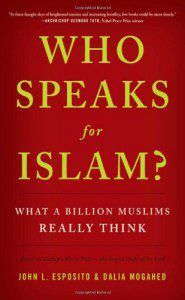 much harm as good in laying the groundwork of hope for Islam’s future. In Esposito’s words, “Abuses in Iraq, Abu Ghraib…as well as Guantanamo Bay and the rendition of prisoners….in countries employing harsh interrogation techniques and torture…undermine the U.S. record on human rights and outrage not only Muslims but many others across the world.” U.S. foreign policy also undermines the future of Islam and our future on this planet when we “embrace the doctrine of preemptive strikes, sidestep the Geneva Accords, and try to exempt [ourselves] from accountability before international tribunals” (83). Conversely, perhaps the single best way we can contribute to the securing a hopeful future for Islam and the world is investing in the education of women around the globe.
much harm as good in laying the groundwork of hope for Islam’s future. In Esposito’s words, “Abuses in Iraq, Abu Ghraib…as well as Guantanamo Bay and the rendition of prisoners….in countries employing harsh interrogation techniques and torture…undermine the U.S. record on human rights and outrage not only Muslims but many others across the world.” U.S. foreign policy also undermines the future of Islam and our future on this planet when we “embrace the doctrine of preemptive strikes, sidestep the Geneva Accords, and try to exempt [ourselves] from accountability before international tribunals” (83). Conversely, perhaps the single best way we can contribute to the securing a hopeful future for Islam and the world is investing in the education of women around the globe.
And to inverse our perspective further, what if we ask not what people in the West say about Islam, but what Muslims say about us and about themselves? The best starting point I have found is a book published in 2007 (Esposito was one of the editors) titled, Who Speaks For Islam?: What a Billion Muslims Really Think: Based on Gallup’s World Poll — the largest study of its kind.
As a counterpoint to the majority of Americans who say there is nothing they admire about Muslim societies, Muslims said that what they admire least about Western society was:
- “18-year-old youngsters are independent to make any decision, and parents have no importance; they misbehave with parents.”
- “The are vulgar with no respect for elders.”
- “They have weak family bonds and don’t care for others’ feelings.” (23-24)
And if you want to hear Muslims speaking for themselves about Islam, one of the most fascinating places to listen is on Twitter. I particularly recommend the hashtags #NotYourStockMuslim and #MuslimApologies. The following are a few examples:
- We come from different backgrounds. We have different experiences. We can’t be homogenized into one voice. #NotYourStockMuslim
- “Angry Terrorist #3”, “Brown Taxi Cab Driver” & “Slum-dog Millionaire’s 2nd Stunt Double” aren’t on my LinkedIn Profile. #NotYourStockMuslim
- “both East and West Indian, in a sorority, active in public health activism and reproductive justice movements, and #NotYourStockMuslim.”
- My Muslim parents were the first people to expose me to feminism #NotYourStockMuslim
- Both of my younger sisters who practice hijab are on their high school sports teams, basketball and gymnastics #NotYourStockMuslim
- Lefty feminist Muslim. Fave memory: bringing home agnostic white boy. My Muslim father was the 1st to step up & support. #NotYourStockMuslim
- I met my husband through the traditional desi marriage process. I chose this. 11 years & 2 kids later never happier #NotYourStockMuslim
- we’re not 2D characters who either pray & hate the west vs drink alcohol & love the west #NotYourStockMuslim
- investment counselor who “wears pantsuits with her hijab to work because she’s #NotYourStockMuslim” (except when she’s actually dealing with stocks).
- I’m sorry you tapped my phone and all you learned was that I was planning a potluck at the mosque on Friday #MuslimApologies
- I am sorry that I don’t know how to use an AK-47. #MuslimApologies
- I’m sorry you tripped while staring at me #MuslimApologies
Those are a small sample of twenty-first century Muslim voices that give me hope for the future of Islam.
So what causes the opposite, extremist voices to emerge?
Studies by the European Network of Experts on Violent Radicalization…on global terrorism and suicide bombing have found that in most cases religion is not the primary source of most extremist behavior. In many cases terrorists are neither particularly religiously literate nor observant. Drivers of radicalization include moral outrage, disaffection, peer pressure, the search for a new identity, and for a sense of meaning, purpose and belonging.
Polls show that a majority of Muslims worldwide want the same things we in the West — and humans generally — want: “improve economic conditions, employment opportunities, and living standards…; strengthen law and order, promoting democratic ideals, eliminating civil tensions and war, and enhancing respect and independence for their countries; eradicate illiteracy and ignorance, and achieve gender equality, social justice, and religious freedom” (Esposito, Future, 72).
For me the takeaway is that decreasing wealth inequality, educating the public about the diversity of the world’s 1.5 billion Muslims, and supporting the education of woman are all major steps that we can do to support a hopeful future for Islam. May we do our part to bringing about such a future.
For Further Study
Eboo Patel, Acts of Faith: The Story of an American Muslim, the Struggle for the Soul of a Generation
Saleemah Abdul-Ghafur, Living Islam Out Loud: American Muslim Women Speak
Sarah Conover, Muhammad: The Story of a Prophet and Reformer
Ayat Jamilah, Beautiful Signs: A Treasury of Islamic Wisdom for Children and Parents
Karen Armstrong, Islam: A Short History
The Rev. Dr. Carl Gregg is a trained spiritual director, a D.Min. graduate of San Francisco Theological Seminary, and the minister of the Unitarian Universalist Congregation of Frederick, Maryland. Follow him on Facebook (facebook.com/carlgregg) and Twitter (@carlgregg).
Learn more about Unitarian Universalism:
http://www.uua.org/beliefs/principles



